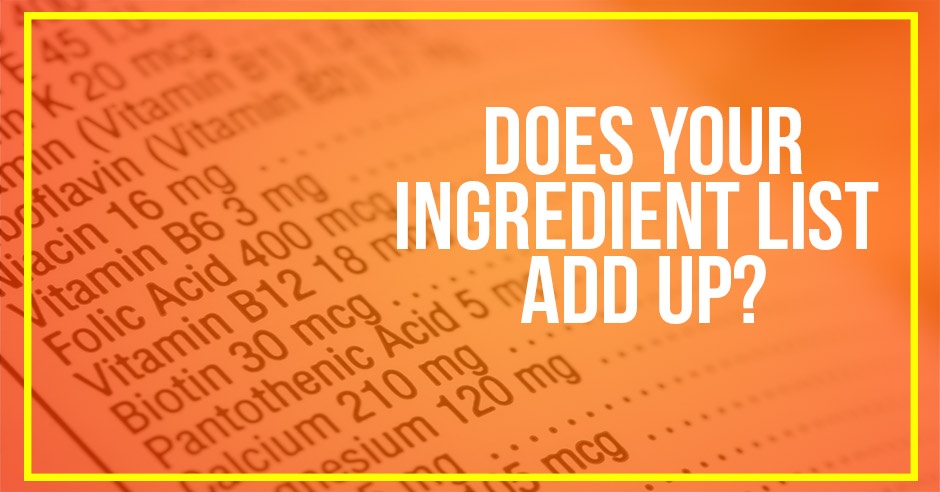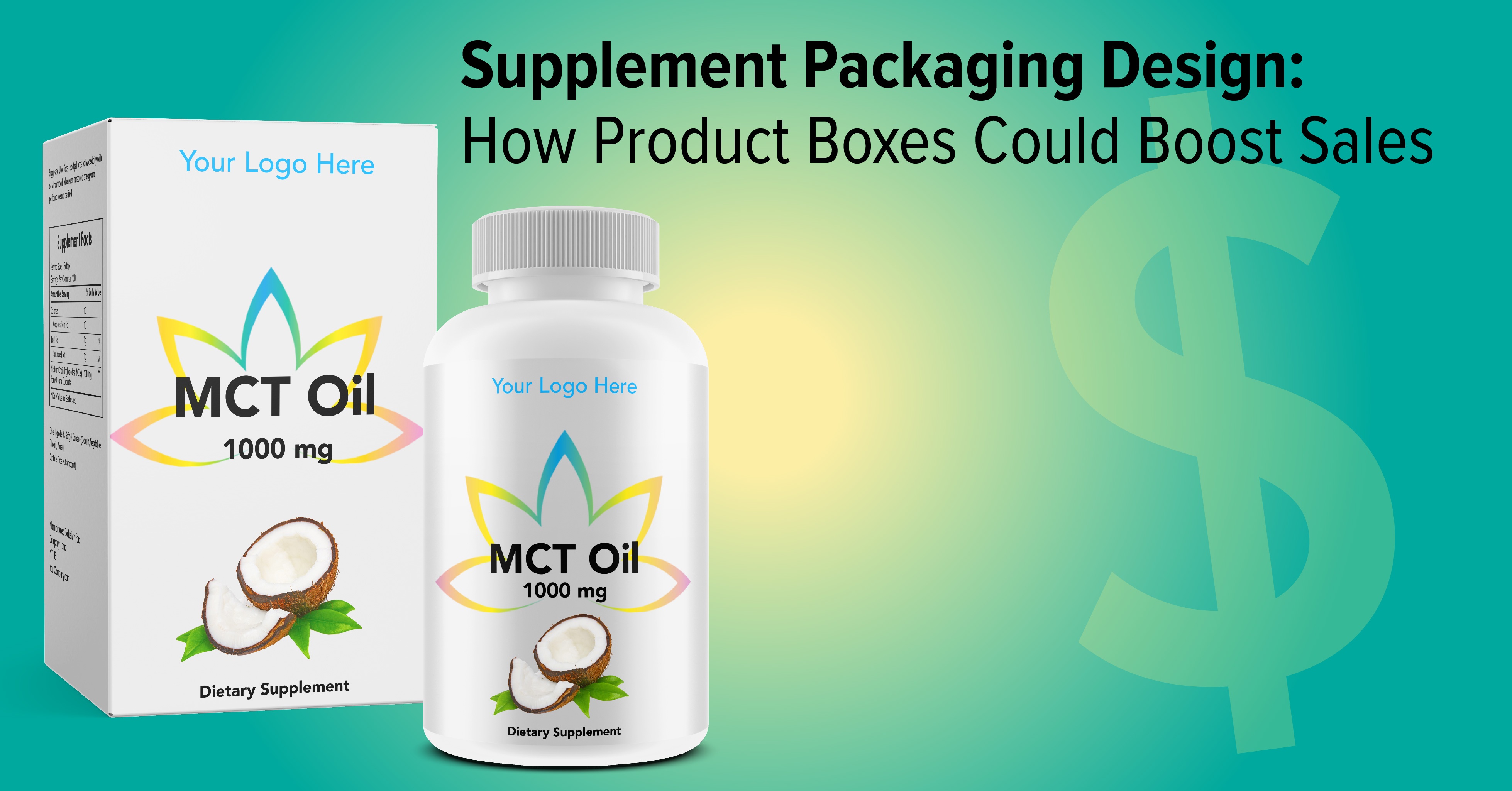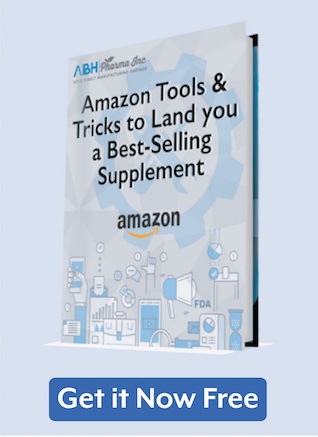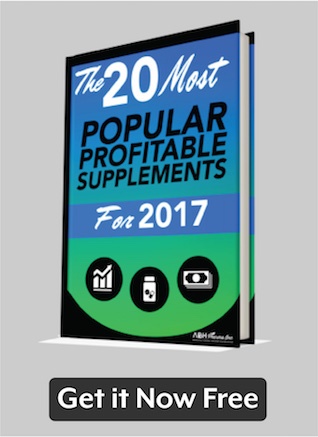In today's hectic society, supplements are being used more and more often to fill nutritional gaps, help with weight loss, provide increased energy, and more.
However, with the vast number of supplement brands available, it can be difficult for consumers to know which one is right for them.
The trend in natural health and wellness has given people the drive to discover products, including supplements, with ingredients they can read and understand. Does your ingredients list stack up?
Everyone's Looking for Clean Label Products
Food Business News suggests that "clean labels," or labels with simple, easy-to-read ingredients, are the trend for the coming year.
Naturally, this applies to supplements as well, since they are typically consumed in the same way as foods. 75% of Americans report that they read vitamin labels before choosing a product, and almost the same number of people strongly agree that nutritional labels should contain ingredients that are recognizable to the average consumer.
A whopping 91% of Americans feel that consumable products, including foods and beverages, that have easy-to-read ingredients are healthier for them.
Transparency in the Food and Supplement Industries
Today's consumers are more informed about additives and questionable ingredients than ever before.
They're more vigilant about what they put in their bodies and they desire that the companies they purchase from be transparent with their labeling.
In order for a supplement brand to build a solid customer base, they must first instill trust in their brand.
Having clean, transparent labeling helps transform prospective customers into loyal brand enthusiasts, because they trust what they're getting and they trust the company they're getting it from.
Honest Labels Reduce Backlash
When supplement brands are honest with their labeling, they can reduce backlash due to allergic reactions and other issues.
For example, consider a young woman with a severe nut allergy. She purchases an herbal supplement for cleansing without awareness that it contains black walnut and has an allergic reaction.
Recognizing the symptoms of anaphylactic shock quickly, she is able to get emergency care and the reaction subsides.
However, she becomes wary of supplements and discontinues taking them, and even files suit against the supplement brand that did not clearly make her aware of the presence of a potential allergen in their products.
By adopting a rule for honest, clean labeling, a supplement brand can reduce cases like the above, where consumers experience allergies or reactions to ingredients that they were not aware were in the supplements they were taking.
Transparent labeling also allows consumers to choose the supplements that not only align with their health and wellness goals, but also their beliefs.
For example, a vegan may desire to avoid gelatin capsules and will be most likely to choose supplements that use vegetable capsules instead of gelatin.
Clean label supplements can give consumers the information they need to make the best choices for them.
Do Your Ingredients Measure Up?
Consider what your supplement might look like with every ingredient listed on it and keep in mind that consumers are driven towards supplements with ingredients that they know and trust.
Does your product have ingredients in it that you would rather not advertise because you know consumers are likely to gravitate away from it?
If that's the case, it might be time to think about how you can transform your supplement into something that is perceived as cleaner and healthier.
For example, you may want to avoid:
- Artificial dyes and coloring
- Artificial flavoring and sweeteners
- Coatings that make swallowing the supplements easier
- Carriers that help maintain the consistency of powder within a capsule
- Binders that help ingredients stick to each other to form tablets
- Artificial preservatives to increase supplement shelf life
- Emulsifiers that bind fats to water
What Can You Put In Your Supplements?
The laundry list of what not to include in your supplements can seem overwhelming and leave many brands wondering what they can use.
There are actually a great number of natural alternatives to ingredients that you'd be better off avoiding.
For example, xylitol or stevia can be used in place of artificial sweeteners in supplements that require flavor, like protein powder mixes.
Beet powder or annatto are natural compounds that can be used as dyes to give supplements a pleasant red or yellow color. The most important thing you can do is research.
Look at every ingredient in your supplement and ask yourself if it should really be there. If there are any questionable ingredients, consider how your supplement might function without it.
There's a good chance that eliminating some or all of the ingredients that consumers are likely to find undesirable won't change the core benefits of your supplement at all.
If, for example, your supplement includes magnesium stearate or stearic acid, these could likely be eliminated without changing the benefits your consumers receive from your supplement.
Your manufacturing costs may go up some, however, so will your sales after eliminating ingredients that today's consumers are steering clear of.
Consider what ingredients can be swapped out for a more natural and easy-to-read ingredient.
If, for example, you have a berry-flavored supplement powder that uses red dye, and you replace red dye with natural beet powder, the performance of your product isn't likely to be affected.
The taste will unlikely be altered as well, since it doesn't take much beet powder to create a rich, appealing red color.
Take Your Ingredients and Clean Labeling to Heart
Your ingredients and their presentation on the label is truly the core of your supplement brand. Underneath marketing and package design, the primary reason consumers are purchasing your product is because of what's in it.
Take your ingredients and transparent labeling to heart and make sure that not only are you using the highest quality ingredients available and you're nixing anything artificial or questionable, but also ensuring that your label is simply designed and includes verbiage that is easy to read and understand.
By giving your consumers what they want -- a quality supplement with ingredients they can trust -- you'll be on the fast track to boosting sales and generating brand loyal customers.







